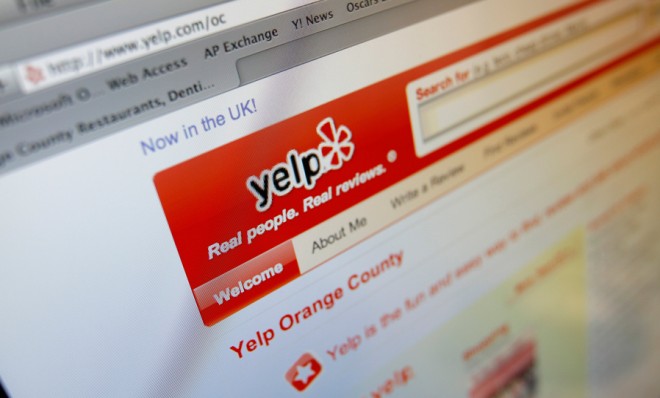Don't believe everything you read on Yelp
Surprise, surprise: Some glowing reviews of restaurants are commissioned by the restaurants themselves

A free daily email with the biggest news stories of the day – and the best features from TheWeek.com
You are now subscribed
Your newsletter sign-up was successful
Customer reviews on sites like Yelp are hugely important for restaurants. A Harvard study found that a one-star increase on Yelp could boost revenue by five to nine percent — a really big deal in an industry in which profit margins are often razor thin.
So perhaps we shouldn't be surprised to learn that some restaurants are cheating the system.
On Monday, New York Attorney General Eric Schneiderman announced a year-long investigation called Operation Clean Turf. Among other things, the investigors pretended to be the owwners of a yogurt shop in Brooklyn, N.Y., and asked companies to write positive comments on sites like Yelp, Google+ Local, Yahoo, and Citysearch.
The Week
Escape your echo chamber. Get the facts behind the news, plus analysis from multiple perspectives.

Sign up for The Week's Free Newsletters
From our morning news briefing to a weekly Good News Newsletter, get the best of The Week delivered directly to your inbox.
From our morning news briefing to a weekly Good News Newsletter, get the best of The Week delivered directly to your inbox.
For as little as a dollar a pop, the city was able to commission rave reviews written by people in Bangladesh, the Philippines, and Eastern Europe — people who, of course, had never visited the yogurt shop.
Multiple businesses were also busted for allegedly posting phony reviews of their own — either boosting their own reputations, or trashing the competition. Overall, 19 companies were hit with a total of $350,000 in penalties.
Schneiderman called it "even worse than old-fashioned false advertising," saying, "When you look at a billboard, you can tell it's a paid advertisement," but with review sites "you assume you're reading authentic consumer opinions, making this practice even more deceiving."
Yelp isn't unaware of the danger that fake reviews pose to its credibility. It has labeled cheaters in the past and recently sued a law firm for allegedly posting positive reviews about itself online.
A free daily email with the biggest news stories of the day – and the best features from TheWeek.com
But fake reviews do more than threaten sites like Yelp. Also at risk is the credibility of the users themselves, summed up in a Wired chart titled, "Should I Trust This Yelp Review?" (Spoiler: The answer is almost always no).
Things Yelp reviewers have been accused of: Extorting restaurant owners for free stuff, writing reviews of restaurants that haven't opened yet, and, as this hilarious dramatic reading of a real Yelp review shows, not being very smart.
Sites like Yelp have to walk a fine line between pleasing merchants, who pay for ads, and keeping the trust of users, whose eyeballs attract businesses to advertise in the first place.
Ultimately, thanks to slashed budgets at newspapers and magazines, restaurant criticism is becoming a "leisure-time activity conducted by those who can afford to work for almost nothing," wrote former Village Voice critic Robert Sietsema.
As a former Voice restaurant writer, I can confirm this.
Keith Wagstaff is a staff writer at TheWeek.com covering politics and current events. He has previously written for such publications as TIME, Details, VICE, and the Village Voice.
-
 The mystery of flight MH370
The mystery of flight MH370The Explainer In 2014, the passenger plane vanished without trace. Twelve years on, a new operation is under way to find the wreckage of the doomed airliner
-
 5 royally funny cartoons about the former prince Andrew’s arrest
5 royally funny cartoons about the former prince Andrew’s arrestCartoons Artists take on falling from grace, kingly manners, and more
-
 The identical twins derailing a French murder trial
The identical twins derailing a French murder trialUnder The Radar Police are unable to tell which suspect’s DNA is on the weapon